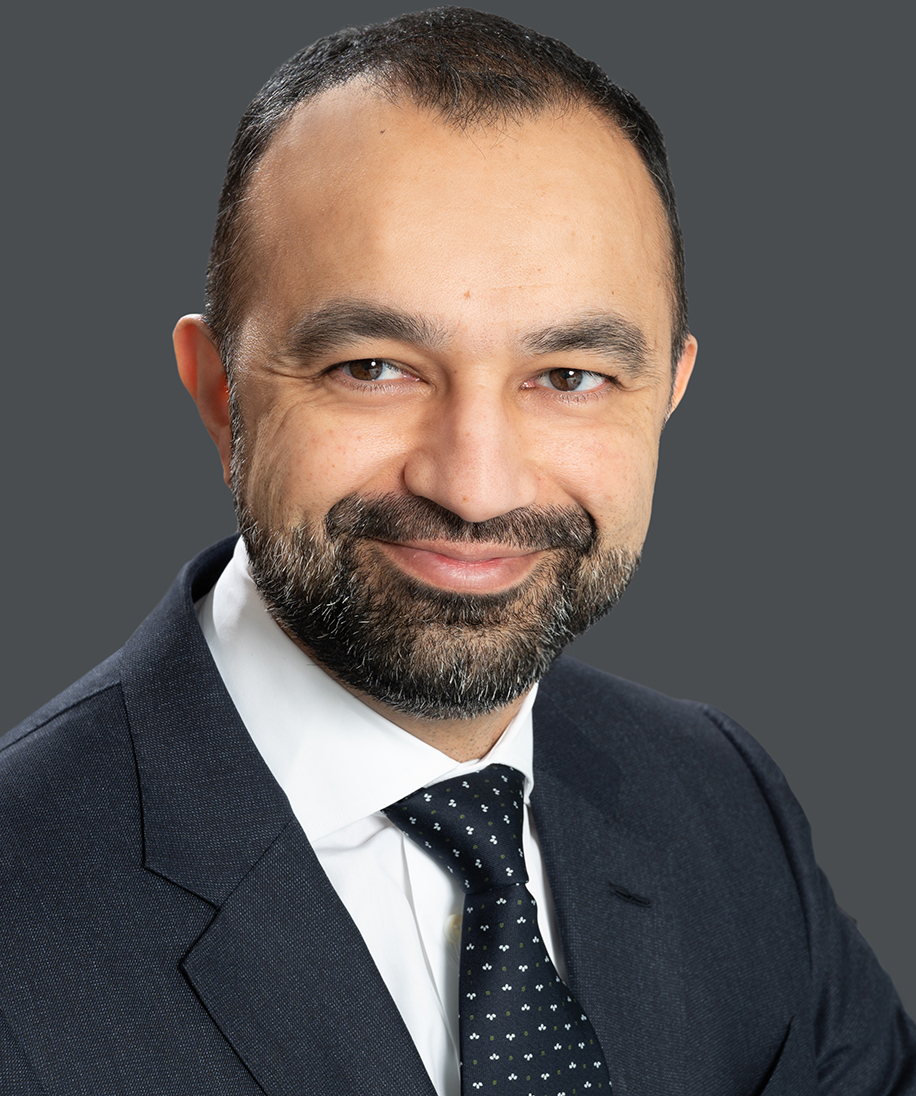Perspective
Prioritising Globalisation, Innovation, and Purpose for Future Growth
April 27, 2021
Miles Flynn, Tara Giunta, Suzanne Horne, Richard Kitchen, Diala Minott, Sarah Pearce, Matthew Poxon & David Wang
In February, Paul Hastings published our latest thought leadership report on Navigating New Paths to Growth. In two subsequent webinars, the report authors and influential keynote speakers discussed our findings. Here, we share their thoughts on the macroeconomic context and the challenges and opportunities companies face charting a route out of the pandemic.
As the world cautiously emerges from the impact of the COVID-19 pandemic, with different countries on different paths back to a new normal and vaccine roll-outs experiencing a myriad of controversies, many organisations see before them a picture of positivity and opportunity against a backdrop of significant macroeconomic challenge.
While the issues that governments and policymakers must grapple with intensify in complexity, on the ground we are witnessing an accelerating wave of technological innovation touching all aspects of our lives, and a gathering momentum demanding business commits more meaningfully to ‘build back better’.
Macroeconomic Uncertainty
At a macro level, concerns of a divergence in policy response, both fiscal and monetary, could muddy the water. Professor Carlo Pier Padoan, Chairman of UniCredit, is a former Italian Minister of the Economy and Professor at the University of Rome. He says: “We have been used to considering the advanced economies to be very similar in attitude and response to the Covid crisis, but we have recently seen some signs that may suggest divergence.”
He points to the varying approaches from the United States and the European Union from a fiscal perspective, with the U.S. more expansionary in announcing a stimulus programme worth nearly $2 trillion. In the monetary domain, the European Central Bank has been aggressive with its €750 billion pandemic emergency purchase programme, but may need to do more, raising further questions about the likelihood of enduring low interest rates amid the emergence of inflationary pressures. “We may be about to see a turning point on interest rates,” says Prof. Padoan, “and if that’s the case, what should monetary policy do—resist it or accommodate it. That outcome will greatly influence the behaviour of both firms and families, who in the face of high uncertainty have been saving a lot.”
Xavier Rolet KBE, Chairman of Shore Capital Markets and former CEO of the London Stock Exchange, shares similar concerns about conflicting nationalistic policy responses at a time of great interconnectedness and an indisputable need for global governance. He says: “My contention is that globalisation has not stopped or reversed, but is in fact accelerating. What we are seeing when we observe nationalistic rhetoric or retrenchment is instinctive reactions, but it is clear that the solutions are neither local, regional or national. We are fighting a pandemic where the only solution is global vaccination.”
He says the same themes were evident during the global financial crisis 12 years ago. “We saw the same pattern,” says Rolet. “Governments responded by pulling up the drawbridge with protectionism, until they realised this was hopeless and our economies are completely connected. Out of that came the early stages of the slow but certain emergence of a global financial governance framework, and we now have a unique opportunity to take that forward.”
As the world population continues to expand and age, the outnumbering of the working population by retirees will create a global pension deficit that the World Bank predicts will hit $400 trillion by 2050, five times the current global GDP. That creates a macro priority to find growth to fund the retirements of tomorrow, says Rolet.
He adds: “In my opinion, those businesses that have the courage to pursue or continue to support global strategies—looking beyond the travails of today and focusing on the connectivity—will win in their particular areas and harvest the growth. Businesses today that prioritise innovation and do so from a global perspective will win the race, not just economically but because they will come up with the solutions that will be societally relevant.”
Crossing the Cliff Edge
As global vaccination programmes begin to make an impact, businesses are now on the verge of a new, post-COVID reality: “We are exiting the pandemic but entering a new normal,” says Prof. Padoan. “In so doing, we have to be careful in determining a more normalised policy environment, to avoid continuing to pour money into the economy—which was, to some extent, necessary—and likewise avoid the so-called cliff edge effect where companies suddenly run short of cash at a time when the economy is not yet back in growth mode.”
He adds, “This is especially important to banks, who may run into heavy losses from non-performing loans just as their balance sheets are being hit by difficulty regaining profits because of low interest rates.” The banking sector has a key role to play in allocating resources to drive capital investment for a new normal, while alternative credit providers have also grown exponentially in the past decade to ensure an availability of lending in the private markets.
In the U.K., the end of the furlough scheme in September could yet represent a cliff edge of sorts, with as many as five million employees still reportedly being paid by government and fears of a tsunami of job losses.
Elsewhere, progress is occurring at different speeds. David Wang, corporate partner and co-head of Paul Hastings’ mainland China offices, says: “Asia’s economies were the first affected by the pandemic but they have also been leading the recovery curve. The impact is largely determined by industry: many technology companies have experienced growth, whereas sectors such as hospitality are catching the attention of savvy investors who are betting on a sharp rebound. We expect to see a significant increase in M&A activity in the Asia Pacific region this year.”
For business leaders, the lifting of state support requires an intense focus on liquidity and cost management. Richard Kitchen, finance partner at Paul Hastings, says: “We have gleaned a nervousness from a number of market participants about what happens at the point when government starts to step back. We are encouraging people to think about that early, think about their future liquidity requirements and keep a close focus on cost optimisation to ensure long-term resilience.”
Companies must now adapt to enduring changes to operating models. “The pandemic has greatly amplified the need to prioritise agile working practices and digital solutions, most obviously the accelerated adoption of remote working,” says Wang. “In Hong Kong and around the region, local outbreaks have forced employees to recommence remote working, and it’s a trend that is likely to stay with us for some time to come.”
From a cost management point of view, that has significant implications for office space requirements, with savvy leaders increasingly seeking the inclusion of greater flexibility in leases, while clients are also focused on transformation around the return to work.
Suzanne Horne, London vice chair and head of the international employment practice at Paul Hastings, says: “We are advising a lot of businesses on policies and contracts that need to be rewritten to reflect a new reality, including looking at wellbeing issues. Longer term, it is about seizing the opportunities coming out of disruption to reimagine what work needs to be done, who needs to be doing it and where, and what new skills might be required.”
Corporates are operating in a new climate of intense innovation, with disruption taking place in every sector of the economy. Whether we consider the transition from physical to virtual in the entertainment space, the growth in demand for enhanced connectivity in telecoms or the disintermediation into digital delivery mechanisms and cryptocurrencies in financial services, the need to embed technological advance and digitisation in business models is now greater than ever before.
Sarah Pearce, head of the European privacy and cyber security practice at Paul Hastings, says: “The use of technology has certainly significantly increased and we have been helping clients with that accelerated implementation. We have seen the use of artificial intelligence (“AI”) and robotics to drive efficiencies and create ever-more advanced solutions, not just as a means of survival but also to further growth.”
She adds: “On the globalisation point, we are seeing an increasingly global approach to regulation of the use of the technology, with the new OECD principles on AI and various moves on data privacy, where a lot of nations are now developing legislation akin to GDPR. Compliance and governance is a growing issue for our clients.”
For legal departments, there are numerous new challenges. Tara Giunta, a litigation partner in the Washington, D.C. office at Paul Hastings, says: “Agility and innovation will continue to define the new normal as there remains ongoing uncertainty as to what the new normal really means and how companies will need to respond. That requires legal teams to stay close to the business, anticipate shifting tides and respond with action-oriented advice and solutions. Legal teams should also anticipate that the accelerated timetable for decision making during COVID similarly will remain in the new normal. So, legal teams need to be adept, light on their feet and constantly upskilling to meet those evolving demands for advice and guidance.”
They must also respond to technical innovation, she adds: “While legal departments have typically not been early adopters of technology, the pandemic forced many to integrate more automation and technology in aspects of their work to allow for more efficient handling of legal work, particularly in light of reduced budgets and staffing.”
Rebuilding a Purposeful, Sustainable Economy
Alongside technological investment and operational change, the other great opportunity as we emerge from the pandemic comes from a broad appetite to ensure businesses and economies build back better, with greater regard for ESG considerations. Prof. Padoan says: “We are looking for a new paradigm, which we all agree must be more environmentally friendly, socially supportive and with enhanced governance. How we translate that into policy action, instruments, regulatory recommendations and the better allocation of resources, however, is yet to be determined. This is not just an economic challenge but a social one, where household preferences have a key role to play.”
He argues that the banking sector bears a heavy responsibility to deliver friendly financial instruments and identify sustainable sectors and value chains to effectively support growth. “We need to move quickly,” he says, “beyond a mere economic cost-benefit analysis towards a situation where there are purpose-driven organisations creating a new environment in line with the priorities of stakeholders at large.”
Rolet shares the conviction that a genuine commitment to ESG will sit at the heart of any business’s roadmap to future success. “This is today’s opportunity,” he says. “I know there is a lot of greenwashing and lip service paid to climate change, energy transition, diversity and inclusion and so on, but the companies that offer the solutions to these problems are the ones that will receive the support of consumers. They will be the ones that grow their businesses with the continued endorsement of investors.”
Giunta says: “The pandemic, coupled with Black Lives Matter and the already-accelerating focus on environmental, social and governance and human rights, has caused soul-searching by many. This was recently captured by a McKinsey survey, which found that over 70% of employees get their sense of purpose from work and therefore companies that ignore this do so at their peril because employees also say that if their job doesn’t give them purpose, they’ll leave for one that will.”
She adds: “Among the key shareholder themes for this proxy season is increased attention to ESG from shareholders, stakeholders, and regulators, with 2021 expected to be a record year for shareholder proposals and votes against boards that are not keeping pace with ESG transparency and accountability.”
Diala Minott, private funds partner at Paul Hastings, says: “We are starting to see far more activist stakeholders now taking ESG seriously and demanding companies do more and show an output from the measures they are taking. We know companies with strong ESG policies outperform benchmarks and that a value-driven approach often has financial performance attached to it. Regulators are taking action and a new generation of stakeholders is demanding results.”
Despite a challenging macroeconomic backdrop and the uncertainties associated with the transition to a new normal, opportunities abound for a new era of growth centred on globalisation, technological innovation and a sustainable, purpose-driven approach.
Contributors





Practice Areas
Leveraged & Syndicated Lending
Energy and Global Climate Change
Technology, Media and Telecommunications
For More Information








